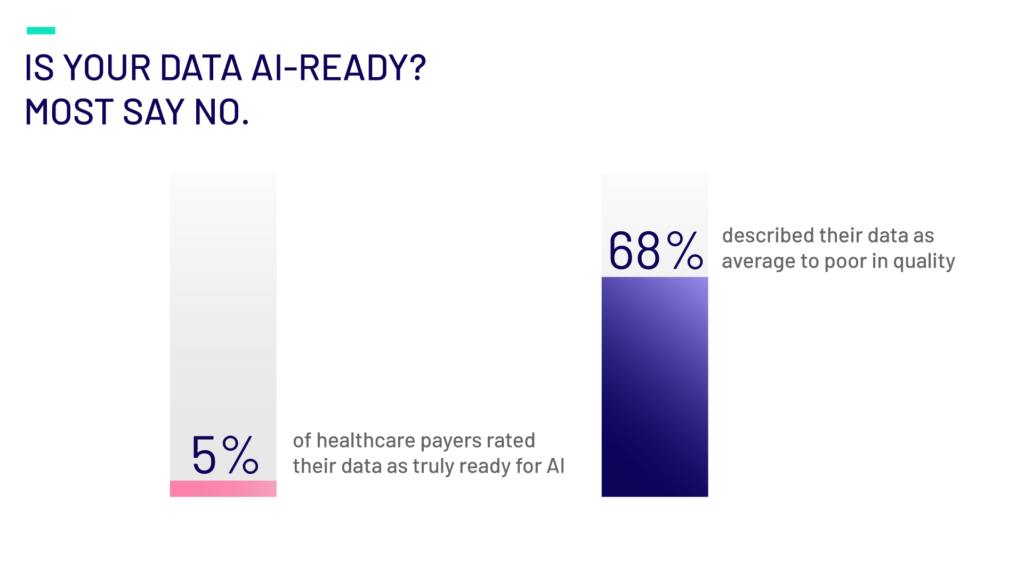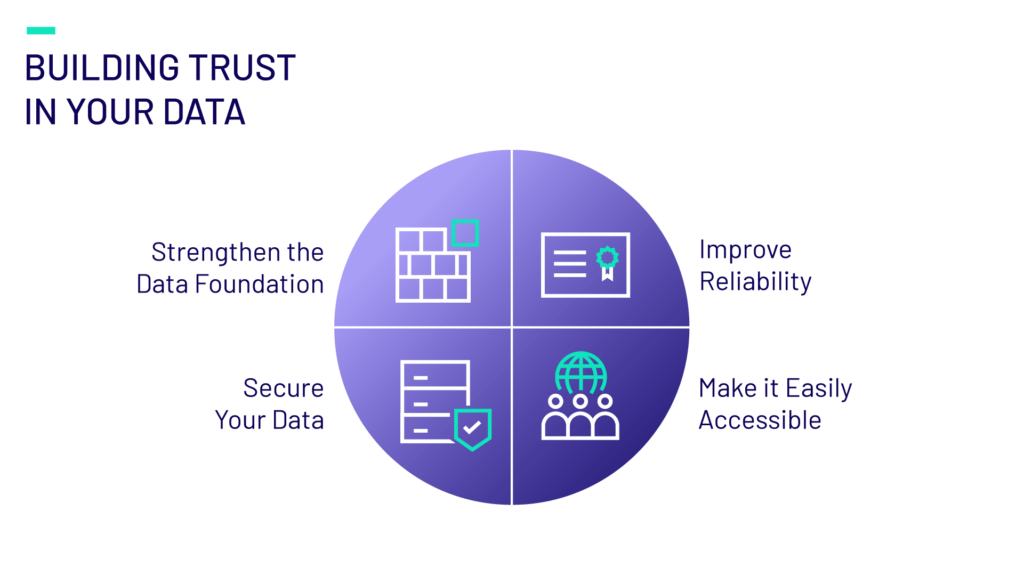The successful implementation of AI in healthcare presents several key hurdles that enterprises must overcome to unlock their full potential. This is especially true for sectors like healthcare, where data security and integrity are paramount.
Enterprises face a few primary hurdles when embarking on AI initiatives, which can include securing buy-in and willingness to invest from leadership, identifying if and how existing processes can integrate AI, and the availability of skilled professionals to develop and manage AI systems.
While all these points impact the success of AI implementation, the truth is that it is your data readiness for AI (or lack thereof) that can bring progress to a screeching halt.
Challenges to Healthcare AI Data Readiness
In sensitive industries such as healthcare, the stakes of being data-ready are exceptionally high. Data integrity is crucial to essential requirements such as patient safety and diagnostic accuracy – as any data-related error can have serious consequences to patient outcomes.
In fact, as per our recent Survey, only 5% of healthcare payers rated their data as truly ready for AI, and 68% described their data as average to poor in quality for AI use.

The healthcare industry faces unique challenges to ensuring good data. Patient data is scattered across various platforms in the healthcare ecosystem who don’t all speak the same language, so to speak. Differing standards and formats across labs, imaging, EHRs, payer systems, etc. can result in fragmented data. This absence of a Single Source of Truth for healthcare data results in data inaccuracies and inconsistencies which leaves providers and payers with unreliable data, impacting the reliability of AI-driven tools and outputs.
Further complicating matters, 75% of payers report persistent data quality issues in core workflows like claims, enrollment, and fraud detection. And a third of organizations still lack data integration across critical workflows. These gaps not only produce sub-par AI outcomes but also increase compliance and cybersecurity risks.
These challenges are complex and shouldn’t be ignored. Addressing them is critical to not only realizing the full potential of AI, but so that your AI initiatives don’t create new or worsen existing problems, ensure regulatory compliance and increase vulnerability against cyber threats.
Complete, uniform, accurate data that can flow between systems and tools, supports the promise of improved patient records, improving administrative efficiencies, and diagnostic support.
Building Trust in Your Data
Trust is a subjective yet vital component to effective AI practices and while it takes years to build trust in brands and people, there’s a prescribed method to improve trust in data:

- Strengthen the Data Foundation: Only 5% of payers surveyed have a mature AI roadmap, and 80% are still in the early stages of adoption. Ensure a robust and well-organized data infrastructure as the strategic backbone of your data ecosystem. This includes scalable storage for structured and unstructured data, data models and architecture, and more.
- Improve Reliability: Implement processes to enhance data accuracy and consistency. By implementing interoperability frameworks, investing in data integration platforms, and applying governance models to define ownership and access rights, your data will be ready to produce reliable AI-powered support. Without these, data silos persist—especially when 41% of payers cite data governance as their top challenge, encompassing issues like access control, data quality, and metadata management.
- Secure Your Data: Only 27% of payers surveyed have fully enforced governance policies to ensure compliance. Protect data integrity and confidentiality through robust security measures such as role-based access control, data encryption and regular monitoring and risk assessments.
- Make it Easily Accessible: Ensure that trusted data is readily available to authorized users and systems in order for it to perform at its full potential. Incorporate UX in user interfaces and consider creating dashboards and visualizations to help present complex data in easily digestible mediums.
The Stakes Are High
AI represents a significant opportunity – a potential goldmine – for your business. However, without a foundation of high-quality, trusted data, this goldmine can quickly become a landmine.
Emids Can Help
At Emids, we help healthcare organizations unlock the power of AI by starting at the source: your data. From designing enterprise-wide data strategies to implementing governance frameworks and quality engineering, we help you build the trust your AI depends on.


